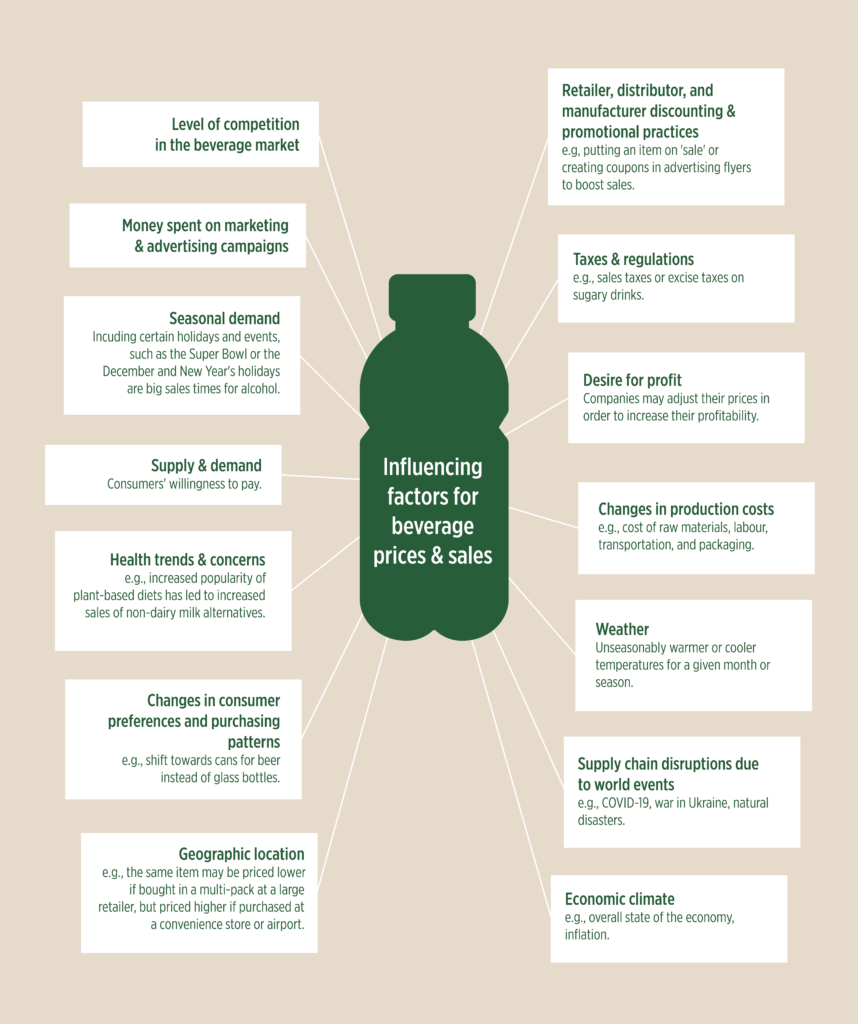FOR IMMEDIATE RELEASE
July 19, 2023
This press release is also available as a PDF download.
CRI Media Contact:
Susan Collins
Phone: 310-991-0392
Email: scollins@container-recycling.org
Reloop Media Contact:
Clarissa Morawski
Email: Clarissa.Morawski@reloopplatform.org
Evidence From New Study Debunks Myth That Deposit Return Systems (DRS) Cause Declines in Beverage Sales
The CRI-Reloop Analysis Draws Conclusions Based on Empirical Data From Existing DRS Markets Across the Globe
CULVER CITY, CA, July 19, 2023 – A study released today by the Container Recycling Institute (CRI) and Reloop finds no definitive evidence that new or expanded beverage container deposit return systems (DRS, aka bottle bills) alone impact beverage sales – suggesting beverage industry concerns that deposit systems lead to sales declines are unfounded.
The study by the two nonprofit organisations, titled “The Impact of Deposit Return Systems on Beverage Sales” (available on CRI’s and Reloop’s websites), uses actual, sourced data from nearly a dozen DRS markets across the globe before and after the systems were introduced or expanded, or the deposit amount was increased. Key findings include:
- None of the case studies provides definitive evidence suggesting that the introduction or expansion of a DRS caused a decline in beverage sales. Fluctuations in sales observed across the case studies were within the normal variation range and aligned with regional trends.
- Many complex and multifaceted factors contribute to changes in beverage sales, meaning any sales increases or decreases cannot only be attributed to deposit return (See graphic.)
- Some previous studies may be unreliable, especially those that used speculative approaches instead of actual historical data.
“The research we conducted in this study is as complete, thorough and transparent as possible, and represents experiences from all over the world over a two-decade timeframe,” said CRI President Susan Collins. “We believe the findings should set to rest the fears of beverage producers and distributors and contribute to a more informed discourse on the adoption, implementation and expansion of beverage container deposit return systems.”
Collins and Reloop CEO Clarissa Morawski said decades of data show that DRS significantly increase container recycling rates – a key to addressing our plastic pollution, marine debris and climate crises. In addition, given the passage of recycled content mandates in certain jurisdictions, and international brands’ stated plastics reduction targets, DRS offer the most effective means to obtain more clean, high- quality materials for manufacturing new products.
Morawski noted, “While producers often battle the introduction of deposit return systems because they wrongly believe they have a negative effect on sales, their impact assessments ignore the huge financial and compliance benefits of getting back up to 90% of their containers for closed-loop recycling.”
Collins and Morawski also said the beverage industry overlooks important considerations when it claims that DRS create higher costs across the distribution chain. These considerations include:
- The costs associated with operating modernised deposit programmes are at least partially offset by the revenue generated from the sale of empty beverage containers as scrap, along with unclaimed
- Significant savings result from DRS implementation, such as reduced extended producer responsibility expenses for producers (in Europe and Canada) and lower costs for municipalities and taxpayers (due to decreased municipal recycling, disposal and litter cleanup expenditures).
According to Reloop and CRI, the study’s findings emphasise the need for a comprehensive understanding of the complex interplay of factors affecting beverage sales, as well as the cautious interpretation of claims regarding the influence of DRS implementation.
“Adoption of beverage container deposit return systems is increasing rapidly across the globe to support a more circular economy, but we need more progress in the U.S.,” said Collins and Morawski. “We hope these study results reduce beverage industry resistance to DRS, enabling the introduction and expansion of programmes that can get more recycled material into the supply chain while reducing litter, marine debris, energy use and carbon emissions.”
Visit CRI’s and Reloop’s websites to read “The Impact of Deposit Return Systems on Beverage Sales” report.
# # #
About CRI
The nonprofit Container Recycling Institute (www.container-recycling.org) is a leading authority on the economic and environmental impacts of used beverage containers and other consumer product packaging. Its original research, objective analysis, responsible advocacy and wide-ranging education serve as the foundation of its mission to make North America a global model for the collection and quality recycling of packaging materials.
About Reloop
Reloop (www.reloopplatform.org) is an international nonprofit organisation, whose vision is a world free of waste, where natural resources remain resources. Leading the global transition to a circular economy, Reloop provides evidence-based research and analysis to governments, industry and NGOs.
